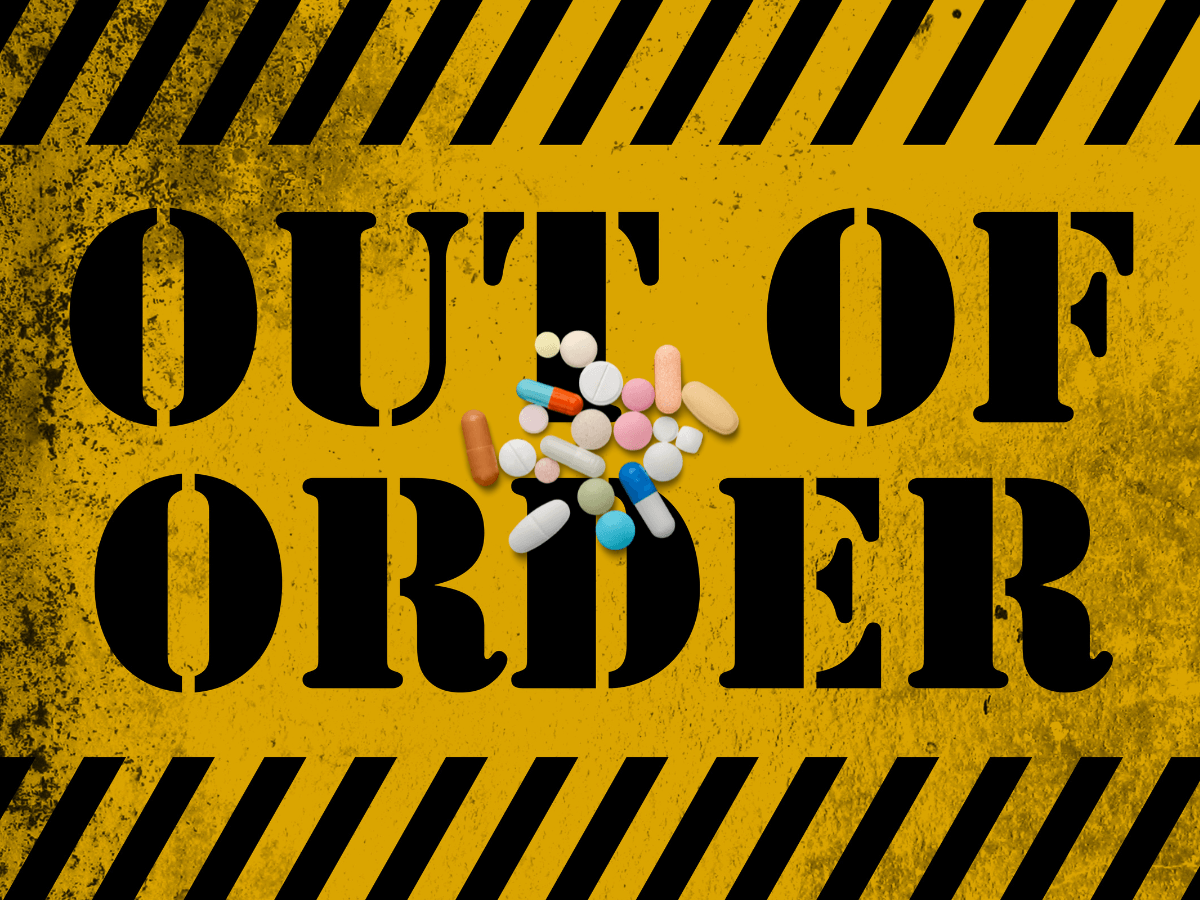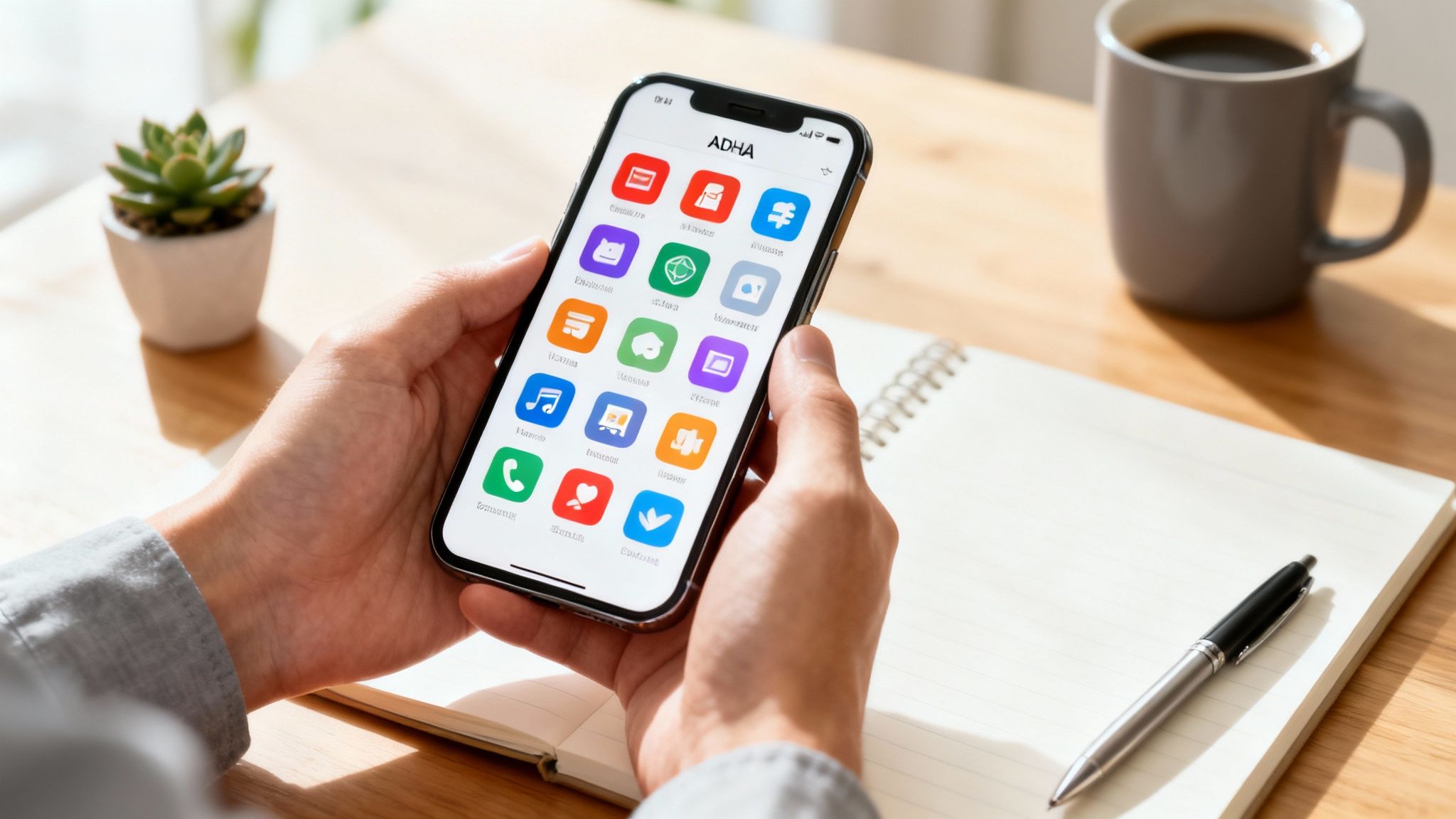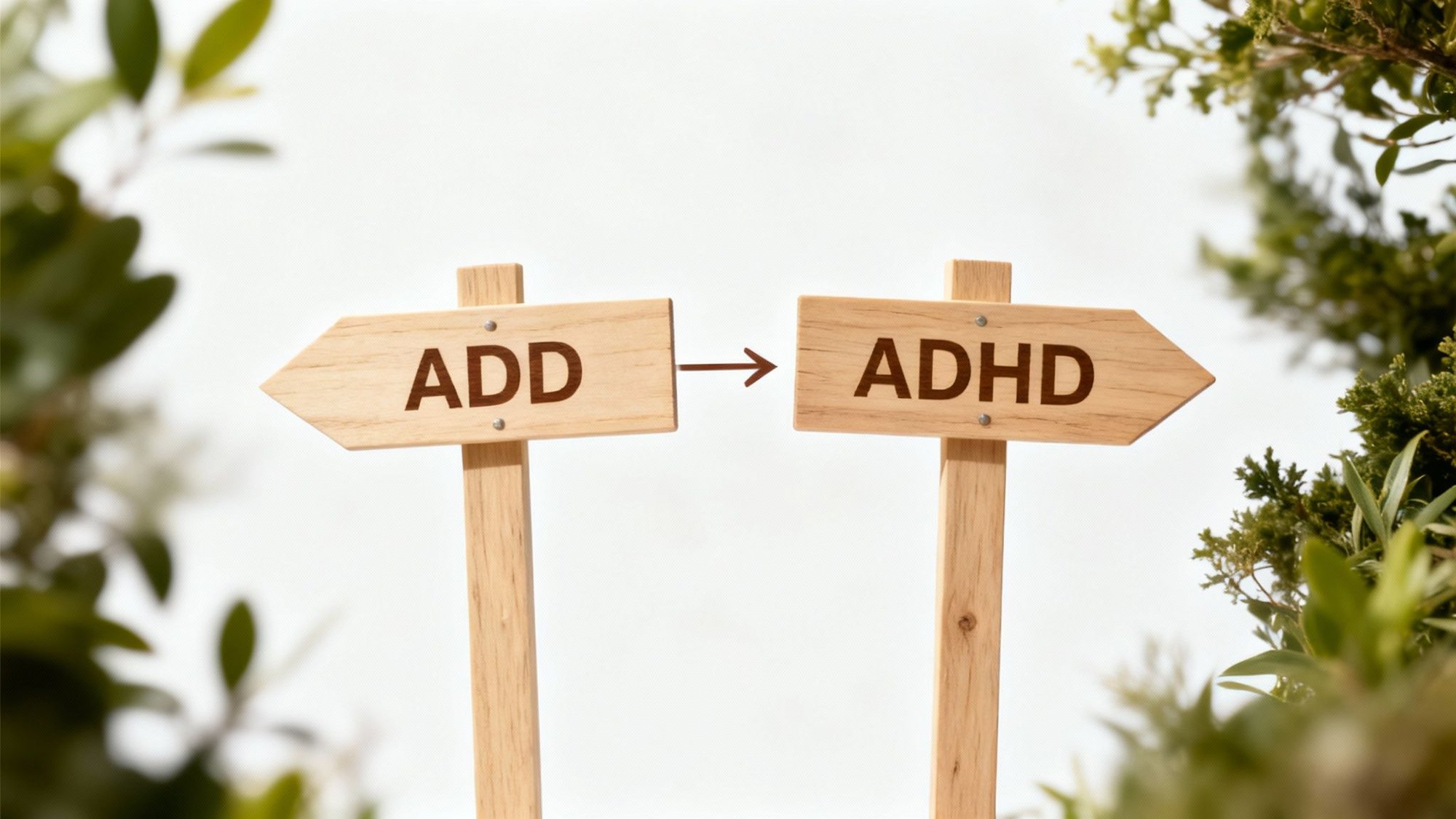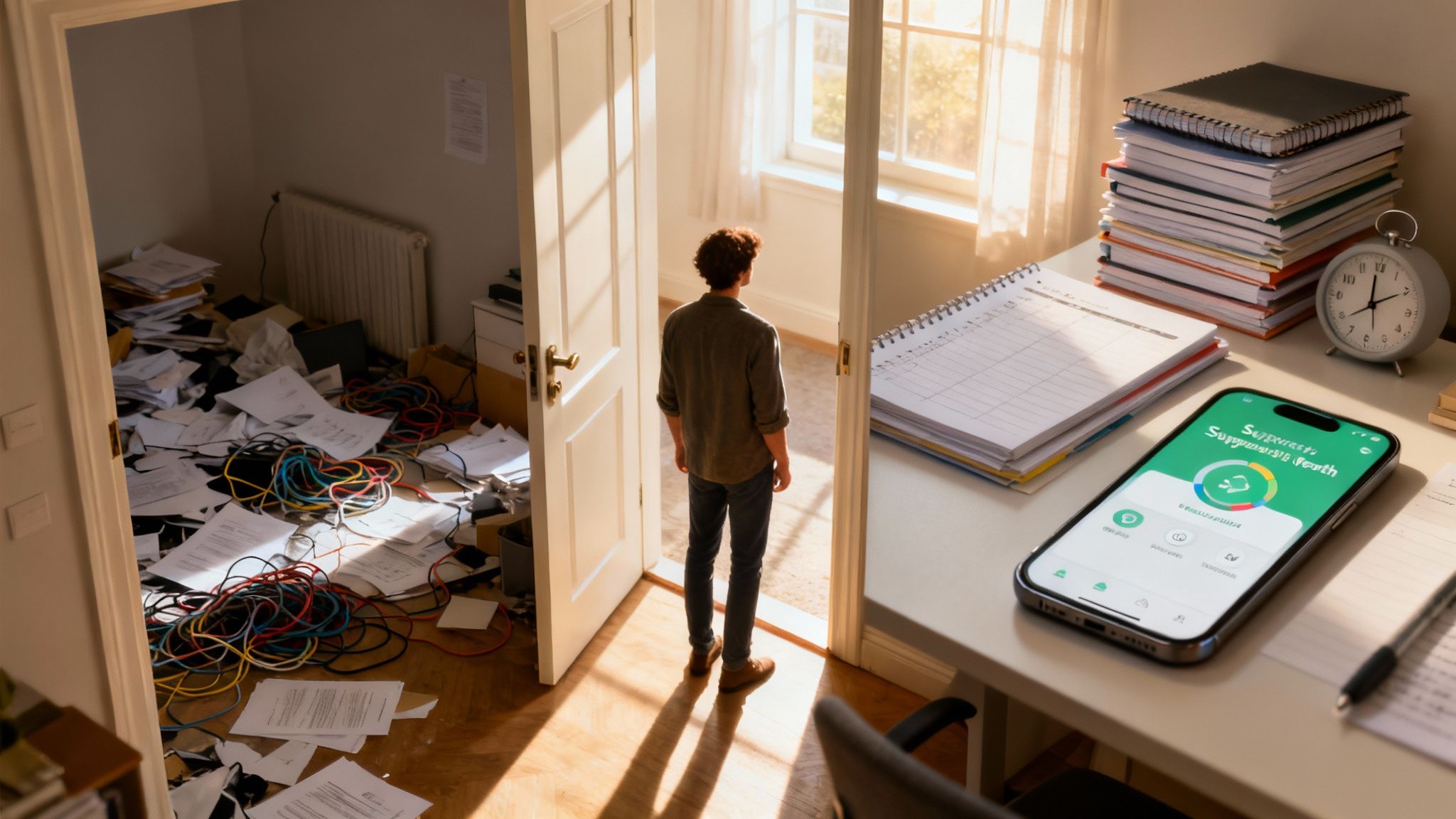You've probably heard of the placebo effect, a phenomenon that occurs when fake treatments cause real improvement based on positive expectations. But what happens when your expectations are negative? Can a real treatment prove ineffective?
Actually, yes.
It's called the nocebo effect, and, like its more well-known cousin, it can significantly impact how well a medication works. Amid the ongoing Adderall shortage, many people have had to switch to a generic or different medication altogether. At the same time, there have been more reports of ADHD medication not working. So, could this be due to the nocebo effect?
Too long; didn't read
- The nocebo effect happens when your negative expectations of how a medication will work actually affect a medication's effectiveness.
- Generic medications are often viewed as being less effective, although they're equal to brand-name drugs.
- ADHDers who switched medication brands due to the Adderall shortage may experience the nocebo effect.
Nocebo effect vs. placebo effect
The nocebo effect is the opposite of the placebo effect, which is when someone takes a placebo treatment (i.e., a "sugar pill" or otherwise non-effective form of medication) and can still feel the effects of the drug they didn't take. For example, if a patient is given a sugar pill (placebo) but believes they are taking a pain medication, the placebo effect can improve their pain levels.
The nocebo effect, or nocebo response, is the placebo effect's exact opposite, where negative thoughts or beliefs about a particular treatment leads to a negative outcome, such as reduced efficacy and more adverse side effects.1
What does the nocebo effect feel like for ADHD medication?
Even though the ADHD medication is, in fact, effective, the nocebo effect can make it feel like it's not. In other words, the nocebo effect can feel like:
- ADHD symptoms are staying the same
- ADHD symptoms seem to get worse
- Sudden onset of unpleasant side effects, such as nausea or fatigue
5 things that cause the nocebo effect
The nocebo effect comes from negative expectations that can lead to a negative outcome. But where does this negative thinking stem from?
1. Generic medication formulas
Branding plays a role in performance expectations. For example, roughly one-third of the population considers generic medications less effective, unsafe, and more likely to cause negative side effects.1
So, when patients switch from a brand-name medication to a generic one, they might suddenly feel like it's not working.
2. Malnutrition and dehydration
It's no secret that stimulants can cause appetite suppression. For ADHD medication to work correctly, it needs a functioning body and brain to be properly supported by nutrients, so getting enough protein in your diet and staying hydrated is critical.
Unfortunately, not eating or hydrating enough could also impact your overall mood, making you more susceptible to negativity or fear towards your medication.
3. Preconceived ideas and past experience with medication
Negative expectations often come from prior experience. For example, if you have a history of reacting badly to medication, you might expect it to happen again. Research shows as many as 1 in 5 people believe they are especially susceptible to medication side effects.2
Additionally, doctors, nurses, and pharmacists have a certain level of authority, so if they emphasize the side effects or appear uncertain about effectiveness, the nocebo effect is more likely to happen.3
4. Negative stories in the media about the drug
Research shows that media coverage can increase the nocebo effect. For example, one study found a significant increase in reported side effects from patients after a series of negative news stories were released about medication.4
Hearing from any source that your medication stopped working for someone else or has suddenly become ineffective can make you more likely to doubt its effectiveness.
5. Building up a stimulant medication tolerance
Building a tolerance to stimulant medication is unavoidable, especially if the drug isn't being taken as prescribed. The feeling of euphoria that occurs for some when first taking the drug wears off eventually and leaves the patient feeling like it's ineffective. In reality, ADHD medications shouldn't make you feel like a superhero. They should make you functional.
Some doctors recommend taking "drug holidays," or at least not taking ADHD medication on the weekends to avoid building a tolerance. Make sure you talk to your doctor to see if taking breaks from medications is right for you.
Could medication issues be caused by the Adderall shortage?
The ongoing Adderall shortage has affected millions of people with ADHD who depend on medication for school, work, or everyday life.
Adderall is in a class of drugs known as stimulants, meaning it's a schedule II controlled substance. Schedule II drugs have a higher risk of abuse or dependency, so there are limits put in place by the Drug Enforcement Administration (DEA). Manufacturing companies can only make a certain amount of medication each year, determined by a quota based on estimated demand.
But demand for Adderall has increased while DEA quotas have remained the same, causing a nationwide shortage.
FDA regulations on stimulant drugs
Due to the medication shortage, many people have had to switch to generic Adderall or a different ADHD medication altogether. A recent influx of ADHDers claim their prescribed medication is suddenly either less effective or not working at all.
Luckily, FDA regulations are implemented to ensure generic Adderall is bioequivalent to Adderall. Generic medications are required to have the same active ingredient, strength, dosage form, and administration method as their brand-name counterpart.
Of course, some people can be sensitive to slight differences in manufacturing or inactive ingredients, but these differences won't affect most people. If you're concerned that you're one of them, though, it's always a good idea to speak with your doctor about it.
Higher levels of stress can also cause ADHD symptoms to worsen and can make medication metabolize faster.5 For many ADHDers, switching medications or worrying about the continued shortage is stressful and could cause them to overthink their medications.
What can we do now?
ADHD healthcare providers, change your tone.
It's important for healthcare providers to be aware of how the nocebo response can affect patient outcomes.3 While providers obviously can't withhold information about side effects, they can (and should) consider framing it more positively.
Think, "Most patients tolerate this medication without any trouble" or "Side effects are usually pretty mild."
ADHDers, stay aware.
Awareness goes a long way, so understanding the nocebo effect can help decrease the risk! Now that you know stress is critical, monitor your stress levels and practice good self-care. Stay hydrated, pay attention to your sleep hygiene, and ensure you eat enough while medicated.
But most importantly, don't be afraid to voice your concerns! Talk to your doctor about any new or worsening side effects, fears about medication changes, or overall effectiveness.
Sources:
1 International Review of Neurobiology | The Power of Labeling in Nocebo Effects
2 Annual Review of Psychology | Psychobiological Mechanisms of Placebo and Nocebo Effects: Pathways to Improve Treatments and Reduce Side Effects (2018)
3 Pharmacol Res Perspect |The nocebo effect of drugs (2016)
4 Clinical Psychology in Europe | The Effect of Television and Print News Stories on the Nocebo Responding Following a Generic Medication Switch (2020)
5 Expert Opinion on Drug Metabolism and Toxicology | Psychophysiological stress: a significant parameter in drug pharmacokinetics







